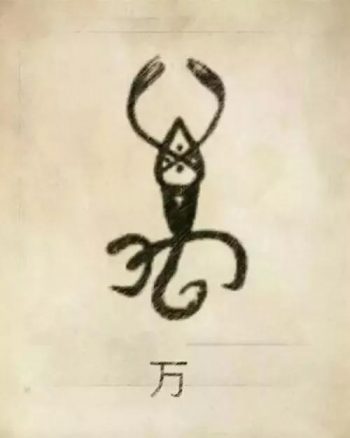The Wan(wàn) surname is one of China’s oldest family names, with roots stretching back to the Zhou Dynasty (1046–256 BCE). Its history reflects China’s multicultural heritage, blending aristocratic origins, ethnic integration, and cultural innovation. For readers interested in Chinese traditions, the Wan surname offers a window into how family identities evolved alongside China’s dynastic changes and global connections.

Ⅰ、Origins of the Wan Surname:
1. Ancient Aristocratic Roots
Descendants of Rui Bo Wan:
During the Western Zhou Dynasty, a royal family member named Ji Liangfu was granted the territory of Rui (modern-day Shaanxi). His descendant, Rui Bo Wan, was exiled to Wei (modern-day Shanxi), where his family adopted “Wan” as their surname.
The Legacy of Bi Wan:
In the Spring and Autumn Period (770–476 BCE), Bi Wan, a military leader from the Jin State, earned land in Wei for his achievements. His descendants became the ancestors of the Wei royal family and adopted “Wan” as their surname.
2. Ethnic Integration
During the Northern and Southern Dynasties (420–589 CE), the Xianbei people (a nomadic group) adopted Han Chinese surnames as part of cultural reforms. Clans like “Tu wàn” and “Wàn niǔ yú” simplified their names to “Wan.”
Later, Mongolian and Manchu groups also adopted the Wan surname during the Yuan (1271–1368) and Ming (1368–1644) dynasties, highlighting China’s multicultural heritage.
3. Official positions and cultural activities derived
In the Shang Dynasty (1600–1046 BCE), the term “Wan” referred to a ceremonial military dance. Some families adopted it as a surname linked to this tradition.
A unique case occurred in the Song Dynasty (960–1279), when an official named Zhao Fang changed his surname to Wan to avoid political taboos.
Ⅱ、Historical celebrities
1. Philosophy and Scholarship
Wan Zhang: A key disciple of Confucian philosopher Mencius, he co-authored The Book of Mencius, shaping Confucian thought for generations.
Wan Sitong: A Qing Dynasty historian who privately compiled The History of Ming despite refusing official titles, symbolizing intellectual independence.
2. Leadership and Innovation
Wan Xiu: A celebrated Eastern Han general enshrined in the “Cloud Terrace Twenty-Eight Generals” for his military prowess.
Wan Gong: A Ming Dynasty hydrology expert whose “Restrain Water to Attack Sand” theory revolutionized ancient flood control.
3. Arts and Creativity
Wan Song Lao Ren: A Yuan Dynasty Buddhist monk who blended Confucian and Buddhist teachings, influencing Mongol rulers through his disciple Yelü Chucai.
Wan Laiming: Pioneer of Chinese animation, director of Havoc in Heaven (1961), hailed as the “Walt Disney of the East.”
Ⅲ、Cultural Legacy:
1. Ancestral Homelands
The Wan clan’s core ancestral regions include Fufeng (Shaanxi) and Henan (Luoyang), reflecting their northern origins.
The 1,700-year-old Wan Village in Anhui, famed for its “five-generation households” and poetic ties to Li Bai’s To Wang Lun, symbolizes family unity.
2. Ethical Teachings
Wan family mottos like “Integrity Above All” and “Duty Before Doctrine”emphasize loyalty, filial piety, and public service.
Tang Dynasty clans like the Wan Jingru family were honored as “Models of Filial Piety” by emperors, reinforcing these values.
Ⅳ、Social impact
1. Migration Patterns
Originating in Shanxi and Shaanxi, the Wan surname spread to Shandong during the Han Dynasty (206 BCE–220 CE) and later migrated south to Jiangsu and Zhejiang due to wars.
Today, over 40% of Wan descendants live in Shandong, Jiangxi, Jiangsu, and Hubei provinces.
2. Cross-Cultural Bridges
The Wan surname appears in Vietnam’s Nguyen Dynasty records and Korea’s Namyang Wan clan, showcasing its role in East Asian cultural exchange.
Overseas Wan communities in Southeast Asia and beyond preserve traditions while fostering cross-cultural dialogue.
Conclusion:
The Wan surname’s 3,000-year journey mirrors China’s history of resilience and openness. From Zhou Dynasty nobility to modern global citizens, Wan families have carried forward values of loyalty, innovation, and cultural pride. Today, as descendants thrive worldwide, the Wan name remains a testament to the enduring power of heritage in a connected world.